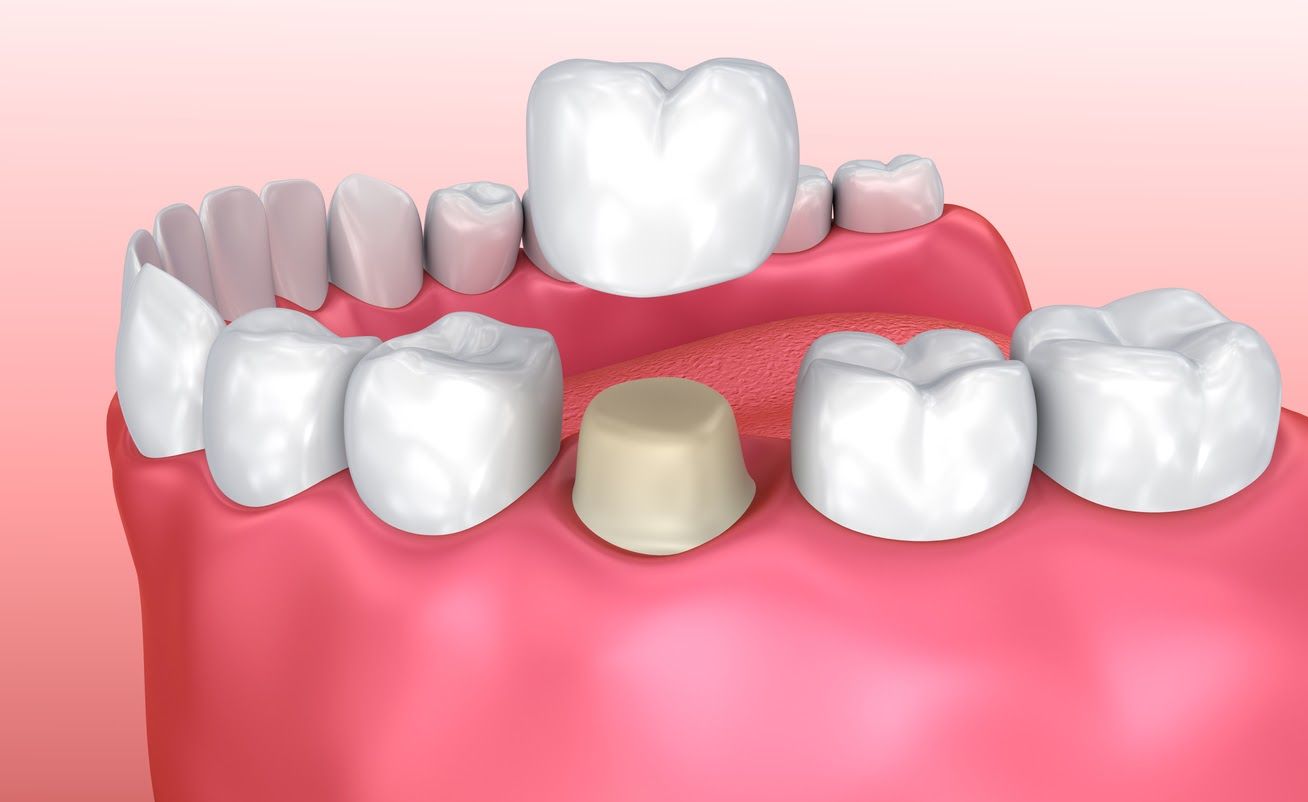When teeth become damaged by decay, injuries, or accidents, this no longer means that you will need to go the rest of your life without them. With modern dental techniques and technology, there are numerous ways to restore teeth and protect them so that they last many years to come into the future. Two of the most common options out there are dental crowns and fillings, but they are still very different from each other. Continue reading to learn the difference so you can find out which one is best for you.
How do dental fillings work?
Dental fillings can be used to treat minor damage to the teeth, such as small cavities and fractures. The first step involves your dentist administering a local anesthetic, if needed, to numb the area. Next your dentist will prepare your teeth by removing any damaged parts and apply an acid gel to clean the area. This way, lingering bacteria and debris can be removed. The filling material is then added to the tooth. Fillings can be made up of numerous different materials, like porcelain, amalgam, composite resin, and gold. However, these days, dentists usually choose a tooth-colored composite resin for the best possible results.
How do dental crowns work?
Dental crowns also help by restoring damaged teeth but are much different from fillings. Crowns are covers or “caps” that are placed over your damaged teeth. They restore damage and can replace missing teeth to their original size, shape, and function. Here are just some of the reasons why a dentist may opt to use a dental crown:
- In order to protect a tooth that has a large filling and not enough natural tooth structure.
- To attach a bridge to replace a missing tooth.
- Protect a weak tooth from experiencing more damage in the future.
- For restoring a fractured tooth.
- To cover a misshapen tooth.
- To attach to a dental implant. Crowns can be made a from a variety of different materials, like metal alloys, ceramics, porcelain fused to metal, porcelain, and composite resin. They are made to be the exact size, shape, and color needed to blend in seamlessly with the rest of your smile.
Your tooth enamel is the strongest substance in your entire body, but it isn’t indestructible. Thanks to things like dental crowns and fillings, you can restore your damaged teeth to health!
About the dentist
Dr. Dean Hutto is an experienced dentist who has been working in the field for more than 30 years! He earned his Doctor of Dental Surgery degree from the University of Texas Dental School in Houston and is committed to continuing education to keep his knowledge and skills sharp. Currently, he is a proud member of numerous professional organizations, including the American Dental Association, American Academy of Cosmetic Dentistry, and Academy of General Dentistry. To learn more about restoration options or to schedule an appointment at his office in Baytown, visit his website or call (281) 843-1708
